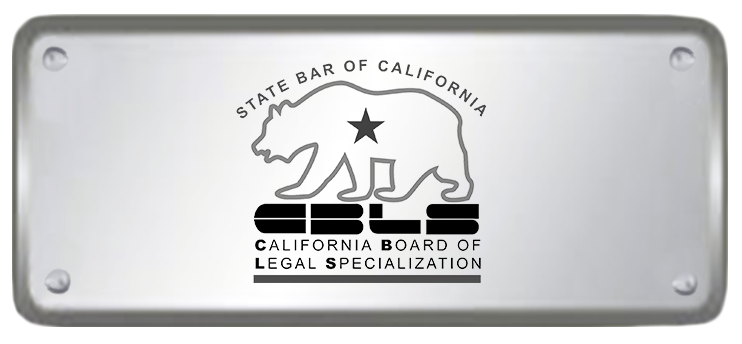DIVORCE AND SEPARATION IN CALIFORNIA
While this may or may not be a first for you, at Antonyan Miranda, we do divorce every day. It is natural to feel stress, frustration, confusion, and loneliness at this time in your life. This is why you need an empathetic but strong attorney by your side that can help you navigate through the family law process. The attorneys at Antonyan Miranda are experienced, knowledgeable, compassionate, and aggressive. There may be deadlines coming due in your case, or you may simply want guidance on how to handle an impending divorce or separation. In California, divorce and separation are handled similarly, and both are referred to as “dissolution of marriage.” Whatever your situation may be, do not leave your future to chance.
What are the Steps for Filing for Divorce in California?
FILE A PETITION FOR DISSOLUTION OF MARRIAGE
The first step in any divorce or separation process is to file a Petition for Dissolution of Marriage with the court. This document sets forth the grounds for divorce, as well as any requests for custody, support, and property division. Our experienced family law attorneys at Antonyan Miranda will work with you to draft this document, ensuring that it accurately reflects your desires and protects your assets.
Regardless of the date that your Petition is filed, your legal date of separation is the date that either you or your spouse expresses that the marriage has ended or either of you acts in a way that is consistent with the marriage having ended. Your legal separation date marks the moment when you and your spouse will no longer accrue community property and community debt.
SERVING YOUR SPOUSE
Once the Petition is filed, your spouse must be served with the paperwork. This means that they will receive a copy of the Petition, along with a Summons, which notifies them that a lawsuit has been filed and sets forth certain legal rights and obligations. Service can be accomplished in several ways, but most commonly is done by personal service. Once your spouse has been served, they have 30 days to respond to the Petition. If they fail to respond, the court can issue a default judgment meaning that the court will grant the divorce and any other requests made in the Petition without your spouse’s input.
TEMPORARY ORDERS
Divorce proceedings can take a while, depending on their complexity, court availability, and the ability of the spouses to agree upon certain issues and resolve disputes. At a minimum, a California divorce takes at least six months after your spouse is served with the divorce paperwork before judgment can be entered. Temporary Orders can be requested to address child custody and visitation, child support, spousal support, use of property, and attorney fees, amongst other issues. These temporary orders remain in effect until another order or judgment supersedes them.
DISCLOSURE
The disclosure process is automatic in a California divorce proceeding and is intended to compel both parties to exchange financial and property information with each other. The preliminary declaration of disclosure is required to be served by the spouse who filed the divorce within 60 days of the filing of the Petition. The spouse who is responding to the divorce must serve their declaration of disclosure within 60 days of the filing of their Response to the Petition. Final declarations of disclosure are also required prior to trial unless waived by the parties.
DISCOVERY
Discovery is the process by which both parties produce information about their assets, debts, income, and other relevant information in response to different forms of discovery inquiries. Some examples are subpoenas, Requests for Admission, and depositions. This can be a complex and time-consuming process and requires significant strategic forethought.
SETTLEMENT NEGOTIATIONS
It is not uncommon to engage in settlement negotiations from the onset of the divorce to determine what issues, if any, can be agreed upon without the need for litigation. An example of this might be an agreement upon child custody and visitation orders, despite no agreements as to the financial aspects of the divorce. Sometimes, a global settlement can be reached without ever appearing in court. If a partial settlement can be reached, then those issues are considered resolved, and the trial will proceed on the reserved issues that were not already settled. If a global settlement of all issues is achieved, the parties will commonly enter into a Marital Settlement Agreement or “MSA,” which becomes part of the judgment or divorce decree.
What Happens if a Settlement Agreement Cannot Be Reached?
If a settlement agreement cannot be reached between the parties, the case will ultimately proceed to trial. Discovery and other trial preparations typically increase prior to trial, as both parties must marshal evidence to present their case and meet their respective burdens of proof. The trial is a bench trial, meaning both parties will present evidence and arguments to a judge and not a jury. The judge is the trier of fact who will render a tentative ruling or proposed statement of decision on the issues in dispute.
The parties may challenge a tentative ruling or proposed statement of decisions within statutorily defined timelines, and the judge may or may not agree with the challenges when issuing the final ruling or statement of decision.
What Is Determined In A Marriage Settlement Agreement Or Divorce?
Issues of child custody and visitation are of paramount importance when children are involved. Legal Custody refers to the legal authority to make decisions regarding the child’s upbringing and well-being, while Physical Custody refers to where the child primarily resides. Visitation refers to the time each parent spends with the child. In California, child custody and visitation determinations are primarily made considering the best interest of the child, taking into account factors such as the child’s age, health, welfare, and relationship with each parent. This area of family law is highly discretionary, and the judge may consider a variety of factors when making child custody and visitation orders.
Child support in California is determined by a complex guideline formula that considers many factors, including both parents’ incomes and the amount of time they spend with the child. The guideline formula is presumptively correct and is designed to ensure that child support considers the financial needs of the child based on the parents’ circumstances. California law requires that child support be paid until the child reaches the age of 18 or 19 if the child is still in high school. Child support is always modifiable if there is a change in circumstances from the prior order, such as if there is a significant change in either parent’s income.
Spousal support in California, also known as alimony, may be awarded to one spouse to help them maintain the status quo during the pendency of the divorce (temporary spousal support), and their standard of living after the divorce (permanent spousal support). Temporary spousal support may be based upon the guideline calculation, while permanent spousal support is based on a number of factors, including the length of the marriage, each party’s earning capacity, the standard of living during the marriage, and the needs of each party. Temporary and permanent spousal support can be modified in certain circumstances, such as if there is a significant change in either party’s income or if the recipient spouse remarries.
PROPERTY DIVISION:
Property division in California is governed by community property, which means that all monies, property, and debt acquired during the marriage is presumptively owned by both spouses, regardless of who earned the income. This includes assets such as real estate, investments, and retirement accounts, as well as debts incurred during the marriage, such as credit cards. However, certain property, such as gifts, inheritances, and property owned before the marriage, may be considered separate property and not subject to community property division.
ATTORNEY FEES:
In California divorces, the court has the power to order one spouse to pay the other spouse’s reasonable attorney fees if there is a significant disparity in the parties’ incomes and unequal access to legal representation. Also, the court may order monetary sanctions payable by one spouse to the other if they have acted in bad faith during the divorce proceedings, which could include unnecessary litigation and frustration of settlement.
Throughout the divorce process, it is important to have a highly skilled attorney who can help you navigate the complexities of California divorce laws and ensure that your interests are protected, help you negotiate a fair settlement, or represent you in court if the case goes to trial. Divorce and separation can be a difficult and emotional process. At Antonyan Miranda, we aggressively advocate for your interests at trial, using all available legal tools and strategies to help secure all that is important to you: family, finances, and assets! Call us at 619-696-1100 to speak with one of our Concierge attorneys, or visit us at www.expertdivorcelaw.com for more information.
DIVORCE AND SEPARATION IN CALIFORNIA
While this may or may not be a first for you, at Antonyan Miranda, we do divorce every day. It is natural to feel stress, frustration, confusion, and loneliness at this time in your life. This is why you need an empathetic but strong attorney by your side that can help you navigate through the family law process. The attorneys at Antonyan Miranda are experienced, knowledgeable, compassionate, and aggressive. There may be deadlines coming due in your case, or you may simply want guidance on how to handle an impending divorce or separation. In California, divorce and separation are handled similarly, and both are referred to as “dissolution of marriage.” Whatever your situation may be, do not leave your future to chance.
What are the Steps for Filing for Divorce in California?
FILE A PETITION FOR DISSOLUTION OF MARRIAGE
The first step in any divorce or separation process is to file a Petition for Dissolution of Marriage with the court. This document sets forth the grounds for divorce, as well as any requests for custody, support, and property division. Our experienced family law attorneys at Antonyan Miranda will work with you to draft this document, ensuring that it accurately reflects your desires and protects your assets.
Regardless of the date that your Petition is filed, your legal date of separation is the date that either you or your spouse expresses that the marriage has ended or either of you acts in a way that is consistent with the marriage having ended. Your legal separation date marks the moment when you and your spouse will no longer accrue community property and community debt.
SERVING YOUR SPOUSE
Once the Petition is filed, your spouse must be served with the paperwork. This means that they will receive a copy of the Petition, along with a Summons, which notifies them that a lawsuit has been filed and sets forth certain legal rights and obligations. Service can be accomplished in several ways, but most commonly is done by personal service. Once your spouse has been served, they have 30 days to respond to the Petition. If they fail to respond, the court can issue a default judgment meaning that the court will grant the divorce and any other requests made in the Petition without your spouse’s input.
TEMPORARY ORDERS
Divorce proceedings can take a while, depending on their complexity, court availability, and the ability of the spouses to agree upon certain issues and resolve disputes. At a minimum, a California divorce takes at least six months after your spouse is served with the divorce paperwork before judgment can be entered. Temporary Orders can be requested to address child custody and visitation, child support, spousal support, use of property, and attorney fees, amongst other issues. These temporary orders remain in effect until another order or judgment supersedes them.
DISCLOSURE
The disclosure process is automatic in a California divorce proceeding and is intended to compel both parties to exchange financial and property information with each other. The preliminary declaration of disclosure is required to be served by the spouse who filed the divorce within 60 days of the filing of the Petition. The spouse who is responding to the divorce must serve their declaration of disclosure within 60 days of the filing of their Response to the Petition. Final declarations of disclosure are also required prior to trial unless waived by the parties.
DISCOVERY
Discovery is the process by which both parties produce information about their assets, debts, income, and other relevant information in response to different forms of discovery inquiries. Some examples are subpoenas, Requests for Admission, and depositions. This can be a complex and time-consuming process and requires significant strategic forethought.
SETTLEMENT NEGOTIATIONS
It is not uncommon to engage in settlement negotiations from the onset of the divorce to determine what issues, if any, can be agreed upon without the need for litigation. An example of this might be an agreement upon child custody and visitation orders, despite no agreements as to the financial aspects of the divorce. Sometimes, a global settlement can be reached without ever appearing in court. If a partial settlement can be reached, then those issues are considered resolved, and the trial will proceed on the reserved issues that were not already settled. If a global settlement of all issues is achieved, the parties will commonly enter into a Marital Settlement Agreement or “MSA,” which becomes part of the judgment or divorce decree.
What Happens if a Settlement Agreement Cannot Be Reached?
If a settlement agreement cannot be reached between the parties, the case will ultimately proceed to trial. Discovery and other trial preparations typically increase prior to trial, as both parties must marshal evidence to present their case and meet their respective burdens of proof. The trial is a bench trial, meaning both parties will present evidence and arguments to a judge and not a jury. The judge is the trier of fact who will render a tentative ruling or proposed statement of decision on the issues in dispute.
The parties may challenge a tentative ruling or proposed statement of decisions within statutorily defined timelines, and the judge may or may not agree with the challenges when issuing the final ruling or statement of decision.
What Is Determined In A Marriage Settlement Agreement Or Divorce?
Issues of child custody and visitation are of paramount importance when children are involved. Legal Custody refers to the legal authority to make decisions regarding the child’s upbringing and well-being, while Physical Custody refers to where the child primarily resides. Visitation refers to the time each parent spends with the child. In California, child custody and visitation determinations are primarily made considering the best interest of the child, taking into account factors such as the child’s age, health, welfare, and relationship with each parent. This area of family law is highly discretionary, and the judge may consider a variety of factors when making child custody and visitation orders.
Child support in California is determined by a complex guideline formula that considers many factors, including both parents’ incomes and the amount of time they spend with the child. The guideline formula is presumptively correct and is designed to ensure that child support considers the financial needs of the child based on the parents’ circumstances. California law requires that child support be paid until the child reaches the age of 18 or 19 if the child is still in high school. Child support is always modifiable if there is a change in circumstances from the prior order, such as if there is a significant change in either parent’s income.
Spousal support in California, also known as alimony, may be awarded to one spouse to help them maintain the status quo during the pendency of the divorce (temporary spousal support), and their standard of living after the divorce (permanent spousal support). Temporary spousal support may be based upon the guideline calculation, while permanent spousal support is based on a number of factors, including the length of the marriage, each party’s earning capacity, the standard of living during the marriage, and the needs of each party. Temporary and permanent spousal support can be modified in certain circumstances, such as if there is a significant change in either party’s income or if the recipient spouse remarries.
PROPERTY DIVISION:
Property division in California is governed by community property, which means that all monies, property, and debt acquired during the marriage is presumptively owned by both spouses, regardless of who earned the income. This includes assets such as real estate, investments, and retirement accounts, as well as debts incurred during the marriage, such as credit cards. However, certain property, such as gifts, inheritances, and property owned before the marriage, may be considered separate property and not subject to community property division.
ATTORNEY FEES:
In California divorces, the court has the power to order one spouse to pay the other spouse’s reasonable attorney fees if there is a significant disparity in the parties’ incomes and unequal access to legal representation. Also, the court may order monetary sanctions payable by one spouse to the other if they have acted in bad faith during the divorce proceedings, which could include unnecessary litigation and frustration of settlement.
Throughout the divorce process, it is important to have a highly skilled attorney who can help you navigate the complexities of California divorce laws and ensure that your interests are protected, help you negotiate a fair settlement, or represent you in court if the case goes to trial. Divorce and separation can be a difficult and emotional process. At Antonyan Miranda, we aggressively advocate for your interests at trial, using all available legal tools and strategies to help secure all that is important to you: family, finances, and assets! Call us at 619-696-1100 to speak with one of our Concierge attorneys, or visit us at www.expertdivorcelaw.com for more information.

FOLLOW US!




















